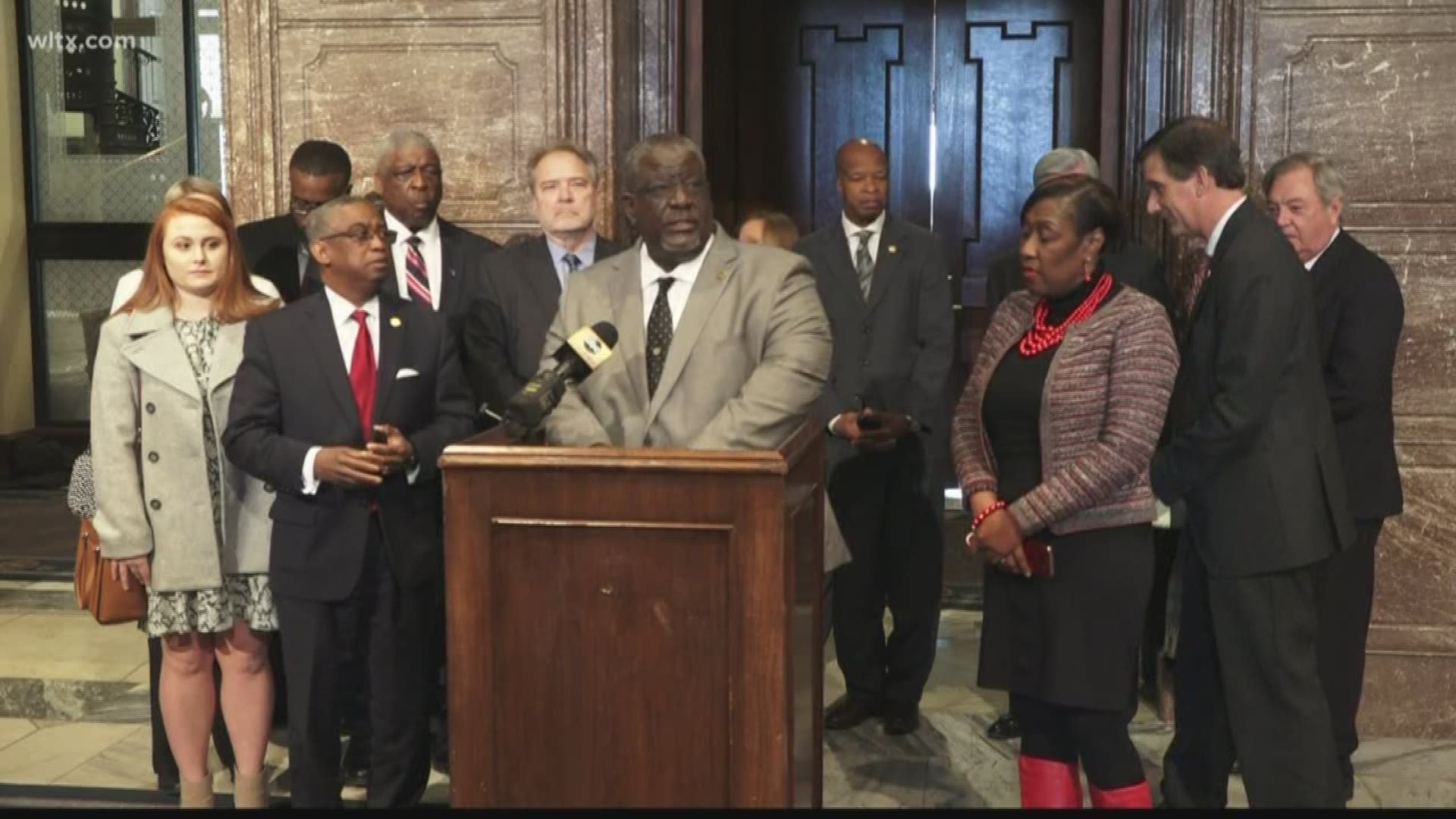COLUMBIA, S.C. — As the South Carolina Senate considers the education reform bill for a second week, a smaller debate has broken out about school vouchers, choice, and educations savings accounts.
At a Wednesday press conference, a group of Democratic senators said they would not support school voucher bills or other similar legislation this year.
“We’re standing here today gathered with education leaders, fellow senators, to draw a strong, hard line in the sand that says ‘no vouchers, no public tax dollars coming out of South Carolina’s treasury and going to private expenditures,” said Senator Vincent Sheheen, (D) Kershaw, to start the press conference.
“We will fight them to the end,” Sheheen added.
The Kershaw Senator said if those types of bills or amendments pass this year, it’ll be less money for teachers, controls on classroom size, and other education changes.
Sheheen was joined by fellow Democratic senators Kevin Johnson, Nikki Setzler, Brad Hutto, John Scott, Dick Harpootlian, Ronnie Sabb, and others.
Senator Kevin Johnson, (D) Clarendon, said vouchers are a mistake both during and after the press conference.
“Anytime we take funds from the public education system to give vouchers for parents to send children to private schools, further harms public education. This would probably be a different conversation if we were fully funding public education, but we're not and we have not for the last I don't know how many years,” Senator Johnson said after the press conference.
The group is concerned a school choice, voucher, or education savings account amendment will end up on the education bill working its way through the Senate this week. They also expressed concern about standalone bills, which would create the same programs.
Johnson said its his fear they would give private schools the right to pick and choose students.
RELATED: Senate education debate set for next week, USC President urges scholarship funding increase
“Your best and your brightest going to private school at taxpayer expense and then the public schools going to be left with students who are-- need more help or need more assistance and we're not going to have the funding to provide it,” Johnson said.
Across the aisle, Senator Shane Massey, (R) Edgefield, who's sponsoring an education savings account bill, says it would be limited to students in habitually failing districts.
“What my goal is here is to give those kids, to give some special needs kids, but a limited number of people the opportunity to find something better. We're not talking about wealthy kids, we're not even talking, for the most part, about middle-class kids. We're talking about kids who are stuck in those underperforming schools and giving them an opportunity,” Massey said.
Massey continued, saying his focus was at-risk students with no other options. He added his opinion that more money in public education isn't necessarily the answer.
“Our system is designed to preserve the status quo and it does a very good job at living up to what it's designed to do. But, if we don't change that, if we don't try to do something different, then we're going to keep getting what we've always got. And just dumping more money into the system isn't going to fix that,” Massey stated.
The Edgefield Republican also pushed back at criticism South Carolina’s schools are underfunded. He said using base student cost, which he agreed South Carolina does underfund, as the only funding metric was unfair.
“There’s a ton of money in education other than just the base student cost. And I think that you’ve got to recognize that,” Massey said. “That’s mostly what you’re hearing in response, ‘If we just spent more money on it, the problems would be solved,’ and I don’t think people buy that,” Massey continued.
Massey said his bill, S.556, would treat the education savings accounts as a scholarship only eligible to be used on education.
The Senator also said he would prefer similar amendments not be added to the education reform bill, saying he thinks the issue needs its own debate.
“My preference would be we do it separately,” Massey said outside the Senate chamber.
However, if it is, Massey and other supporters can expect a fierce debate on the Senate floor.

